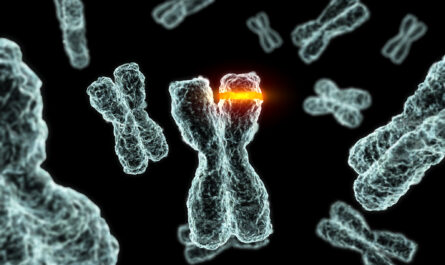In a groundbreaking study, researchers from Stanford University have demonstrated the potential of a novel gene-based therapy for Timothy Syndrome, a rare and often life-threatening genetic disorder characterized by severe cardiac, neurological, and psychiatric symptoms, as well as physical differences such as webbed fingers and toes.
The team, led by Sergiu Pasca, M.D., collected cells from three individuals with Timothy Syndrome and three healthy controls to investigate a specific region of the CACNA1C gene, which carries a mutation responsible for the disorder. They explored the use of antisense oligonucleotides (ASOs), small pieces of genetic material that bind to gene products and promote the production of a non-mutated protein, to correct the cellular deficits underlying the syndrome.
To test the effectiveness of the ASOs, the researchers applied them to human brain tissue structures, called organoids, and tissue structures formed through the integration of multiple cell types, known as assembloids. They also analyzed organoids transplanted into the brains of rats. All experiments were conducted using cells from individuals with Timothy Syndrome.
The application of ASOs resulted in the restoration of normal functioning in the cells, with dose-dependent and lasting effects for at least 90 days. Dr. Pasca stated, “Our study showed that we can correct cellular deficits associated with Timothy Syndrome. We are now actively working towards translating these findings into the clinic, bringing hope that one day we may have an effective treatment for this devastating neurodevelopmental disorder.”
The genetic mutation in Timothy Syndrome affects the exon 8A region of the CACNA1C gene, which provides instructions for controlling calcium channels—pores in the cell essential for cellular communication. The human CACNA1C gene contains another region (exon 8) that controls calcium channels but remains unaffected in Timothy Syndrome type 1. The ASOs tested in this study decreased the use of the mutated exon 8A and increased the reliance on the non-affected exon 8, ultimately restoring normal calcium channel functioning.
These findings not only offer a potential treatment approach for Timothy Syndrome but also provide broader insights into other rare genetic conditions and mental disorders. Joshua A. Gordon, M.D., Ph.D., director of the National Institute of Mental Health, part of NIH, stated, “These findings could serve as the foundation for new treatment approaches for the disorder, and research into this condition offers valuable insights into other rare genetic conditions and mental disorders.”
The study was published in the journal Nature.
Note:
1. Source: Coherent Market Insights, Public sources, Desk research
2. We have leveraged AI tools to mine information and compile it



